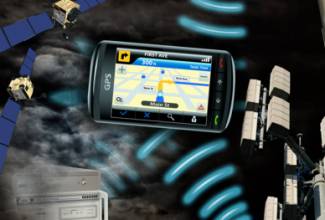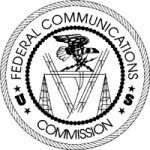 LightSquared graphic
LightSquared graphicWith test results and congressional sentiment running against it, LightSquared has received a two-week extension for filing its report and recommendations, due to the Federal Communications Commission (FCC) yesterday (June 15, 2011), on likely interference to the GPS L1 band.
Meanwhile, a congressional critic of LightSquared’s effort to roll out a 4G/LTE broadband cellular service adjacent to the GPS frequency has called on the agency to rescind its waiver of limits on the company’s plans to build a high-powered national network of terrestrial transmitters.
With test results and congressional sentiment running against it, LightSquared has received a two-week extension for filing its report and recommendations, due to the Federal Communications Commission (FCC) yesterday (June 15, 2011), on likely interference to the GPS L1 band.
Meanwhile, a congressional critic of LightSquared’s effort to roll out a 4G/LTE broadband cellular service adjacent to the GPS frequency has called on the agency to rescind its waiver of limits on the company’s plans to build a high-powered national network of terrestrial transmitters.
Citing the National PNT Systems Engineering Forum (NPEF) tests and analysis reported to the National Space-Based PNT Advisory Board last week, Rep. Mike Turner (R-OH) said in a statement released today (June 16, 2011), “The report released by the NPEF . . . provides concrete technical data to validate the GPS interference concerns of members of our military and of the House Strategic Forces Subcommittee. LightSquared’s operations as currently devised, ‘cannot successfully coexist with GPS’ and would hinder our service members who are counting on an uninterrupted GPS capability to do their jobs. I appreciate the NPEF’s work and, based on their recommendations, echo their call for the Federal Communications Commission to move to rescind the conditional waiver issued to LightSquared on January 26, 2011.”
Turner authored Section 911 of the National Defense Authorization Act for Fiscal Year 2012 (H.R. 1540), which prohibits the FCC from providing final authorization for LightSquared operations until Department of Defense concerns about GPS interference have been resolved. The legislation passed in the House on May 26, 2011, with broad bipartisan support. Turner, the House Armed Services Subcommittee Chairman on Strategic Forces, has legislative jurisdiction over space and satellite systems.
LightSquared’s request for an extension until July 1 came from Jeff Carlisle, the company’s vice-president for regulatory affairs and public policy, who wrote in a June 15 letter to the FCC“Among the main reasons for the slight delay has been that based on preliminary test results, LightSquared determined that additional testing, beyond what had been planned initially, including alternative frequency plans to support its network roll-out, was necessary to permit a proper evaluation of various mitigation options for addressing the GPS receiver overload issue.”
Carlisle said the additional testing has been performed, but that it set back the timetable for processing and analyzing the data. He added that “the analysis of the test results has proven to be time consuming and has required in-depth discussion.”
In a statement on behalf of the Save Our GPS Coalition, Jim Kirkland, vice-president and general counsel of Trimble, issued the following statement:
“After pushing the FCC to order an accelerated review of the interference issues raised by its proposed service, a process that has consumed massive governmental and private resources, LightSquared has now unilaterally sought to delay the process for two weeks.
“The working group results show devastating interference to GPS and no proven method of mitigation. Delay will not change these results. These results are the same results the FCC had had before it granted the waiver. It is disappointing that LightSquared has misused its control over the process to delay this filing. It’s time for LightSquared and the FCC to stop squandering resources and move on to spectrum that does not impact GPS.”
So far, every test program has revealed substantial effects on GPS receivers from simulated and open-air testing of LightSquared cellular broadband signals transmitted in the 1525-1559 MHz band.
In addition to the NPEF evaluation, these include a June 3 report from the RTCA, Inc., on interference to airborne receivers, results from tests conducted by Deere & Company on its receivers widely adopted in agriculture and construction industries and using NavCom Technology’s StarFire satellite-based augmentation service, open-air tests near Las Vegas, and first-responder tests in Arizona.
Also today, the National Public Safety Telecommunications Council (NPSTC) submitted to the FCC its analysis and recommendations based on independent tests of LightSquared and GPS that the council had conducted.
Meanwhile, members of the U.S. House of Representatives continue to turn up the heat on LightSquared. On June 7, congressmen Randy Neugebauer (R-TX) and Steve Austria (R-OH) led 66 House members in expressing concern about the FCC timeline, calling for an additional public comment period, and urging the FCC to only approve LightSquared operations if the company substantively demonstrates GPS non-interference.
Three days later, Representatives Sam Graves (R-MO) and John Barrow (D-GA) led 36 members from the House General Aviation Caucus in highlighting the importance of GPS to the Next Generation Air Transportation System (NextGen) and the concern that LightSquared’s network may jam or disrupt avionics. Their letter asks the FCC to take all steps necessary to protect GPS without imposing additional cost burdens on GPS users.
In its report to the PNT advisory board, the NPEF concluded that a satisfactory “universal mitigation approach” had not been identified. Its review had included such potential options relocating LightSquared transmission to different frequency band or limit use to the lower part of 1525–1559 MHz spectrum. The suggestion that GPS receivers include filters to reject or limit the effects of LightSquared transmissions would involve considerable expense, a lengthy transition period, and might affect receiver performance.





